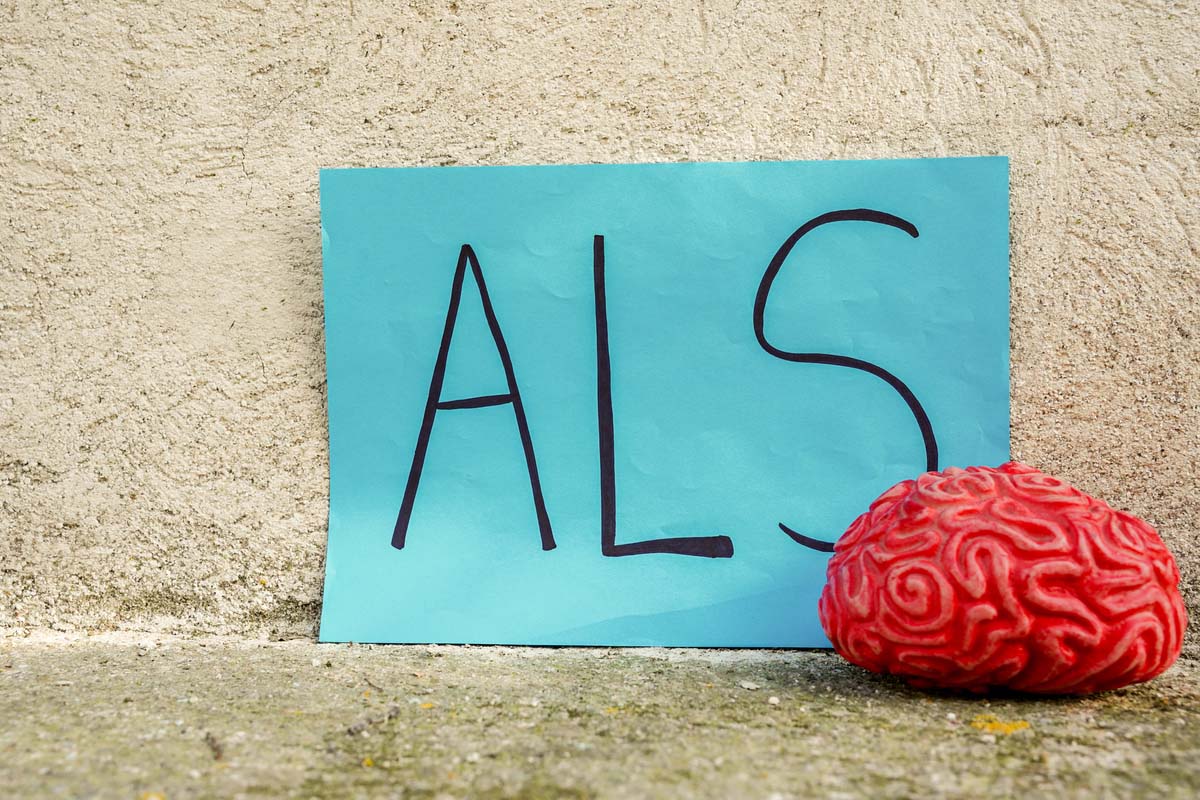See also article by Rosenberg et al.

The Law of Diminishing Intent: Getting Excited About Apathy
Alzheimer’s disease is a global public health concern, affecting an estimated 5.2 million individuals in the United States in 2013 and 36 million worldwide,1,2 and these numbers are expected to triple by 2050.1 It is the fifth leading cause of death among those older than 65 years3 and is estimated to be among the most costly diseases to society.4 Alzheimer’s disease is characterized by progressive cognitive and functional decline. Neuropsychiatric symptoms are common in patients with dementia, with prevalence estimates of 60%-80% and a lifetime risk of 98%.5 The term apathy refers to diminished motivation, goal-directed behavior, goal-directed cognitive activity, and emotion that create clinically significant impairment and cannot be explained by a direct alternative etiology that mimics apathy.8 Apathy is highly prevalent and difficult to manage,5-7 and it is common throughout the range of cognitive disorders from mild cognitive impairment to severe dementia.7,8 Over the 5-year follow-up of the Cache County Study, apathy gradually increased from 20% at baseline to 51% at 5.3 years. Cumulative prevalence was 71%. Of all the neuropsychiatric symptoms rated, apathy consistently had the highest symptom severity,5 which may reflect the tendency of this symptom to be persistent. Once present, apathy is a chronic problem for patients at all levels of dementia severity.5-9 Apathy complicates caring for patients with dementia and is associated with considerable morbidity, exacerbation and more rapid progression of cognitive and functional deficits, increased caregiver burden and distress, and institutionalization, as well as being a major driver of cost.7,8,10 Despite the clinical impact of apathy on quality of life, behavioral, psychological, and pharmacologic therapies have proven inadequate to date.7 Thus, enhancing understanding and management of apathy is a major priority in caring for people with dementia.
In JCP this month, Rosenberg and colleagues11 publish the results of an excellent and timely study, a double-blind, randomized, placebo-controlled, multicenter trial of methylphenidate for apathy in Alzheimer’s disease (Apathy in Dementia Methylphenidate Trial [ADMET]). The detailed study design was published previously.12 This 6-week study recruited 60 subjects at 3 academic medical centers in the United States and Canada. All subjects had mild to moderate possible or probable Alzheimer’s disease with clinically significant apathy defined by the frequency and severity item scores on the apathy domain of the Neuropsychiatric Inventory (NPI).13 Stable doses of selective serotonin reuptake inhibitors (SSRIs), serotonin-noradrenergic reuptake inhibitors (SNRIs), and low-dose trazodone were allowed, but use of other psychotropics was exclusionary. The participants could not have a current major depressive episode or troublesome agitation/aggression, delusions, or hallucinations.
Dosing consisted of a starting dose of 5 mg twice daily of methylphenidate or placebo that, if tolerated, was increased to 10 mg twice daily after 3 days. All study participants and partners received a standardized psychosocial intervention.
The primary outcome measure was an intention-to-treat comparison of the difference in the change from baseline to week 6 on the Apathy Evaluation Scale,14 with several prespecified and post hoc sensitivity analyses. Secondary outcome measures included the odds ratio for improvement in apathy on the modified Alzheimer’s Disease Cooperative Study-Clinical Global Impression of Change (ADCS-CGIC),15 change in the NPI apathy score, and change in the Mini-Mental State Examination16 score for the same time frame. Rates of adverse events were compared between the 2 groups.
The baseline characteristics between the 2 groups were comparable. The participants were in their late 70s on average, the majority were female, and most were white, married, and living in their own home. Participants had high baseline scores on the Apathy Evaluation Scale, revealing meaningful severity of apathy. More than half were taking cognitive enhancers, and although only 17% of subjects had a past diagnosis of depression, 37% were being treated with antidepressants, suggesting that the overlap in symptomatology between apathy and depression might have been confusing to the prescribers. Rosenberg and colleagues11 point out that SSRI and SNRI antidepressants lack evidence for benefit for this indication and may in fact exacerbate apathy in the elderly.
The vast majority of subjects completed the 6-week study, with 79% of the methylphenidate group and 87% of the placebo group remaining on treatment. Over 80% of participants in both treatment groups remained on the full 20-mg total daily dose. Adverse events and side effects were modest, with trends toward greater anxiety and modest weight loss in the active treatment group.
The primary outcome measure, change in Apathy Evaluation Scale score from baseline to week 6, showed a numerical difference but failed to show statistical significance in favor of methylphenidate. The secondary outcome measures revealed a significant odds ratio of 3.7 for improvement on the modified ADCS-CGIC, with 21% of the active group versus 3% of the placebo group rated as moderately or markedly improved. NPI apathy domain score improvement was significantly in favor of methylphenidate, and the Mini-Mental State Examination score trended toward improvement over placebo.
In summary, finding thoughtful, more effective, and better-tolerated interventions for neuropsychiatric symptoms is a major challenge for investigators and clinicians and must become an urgent priority. The results of the ADMET study suggest that methylphenidate is beneficial in the treatment of apathy in Alzheimer’s disease with the intriguing possibility of improving cognition as well. In light of the relatively small sample of this "proof-of-concept" trial and the failure of the primary outcome measure to show a statistical significance, definitive testing of the hypothesis requires a subsequent larger confirmatory trial.
Drug names: methylphenidate (Focalin, Daytrana, and others), trazodone (Oleptro and others).
Author affiliations: Alzheimer’s Disease Care, Research and Education Program (AD-CARE), Department of Psychiatry, University of Rochester School of Medicine and Dentistry, Rochester, New York.
Potential conflicts of interest: None reported.
Funding/support: None reported.
REFERENCES
1. Hebert LE, Weuve J, Scherr PA, et al. Alzheimer disease in the United States (2010-2050) estimated using the 2010 census [published online ahead of print February 6, 2013]. Neurology. 2013;80(19):1778-1783. PubMed doi:10.1212/WNL.0b013e31828726f5
2. World Alzheimer Report 2009. Alzheimer’s Disease International. http://www.alz.co.uk/research/files/WorldAlzheimerReport.pdf. Accessed April 14, 2013.
3. Detailed Tables for the National Vital Statistics Report. Deaths: Final Data for 2010. National Center for Health Statistics. http://www.cdc.gov/nchs/data/dvs/deaths_2010_release.pdf. Accessed April 14, 2013.
4. Hurd MD, Martorell P, Delavande A, et al. Monetary costs of dementia in the United States. N Engl J Med. 2013;368(14):1326-1334. PubMed doi:10.1056/NEJMsa1204629
5. Steinberg M, Shao H, Zandi P, et al; Cache County Investigators. Point and 5-year period prevalence of neuropsychiatric symptoms in dementia: the Cache County Study. Int J Geriatr Psychiatry. 2008;23(2):170-177. PubMed doi:10.1002/gps.1858
6. Lyketsos CG, Steinberg M, Tschanz JT, et al. Mental and behavioral disturbances in dementia: findings from the Cache County Study on Memory in Aging. Am J Psychiatry. 2000;157(5):708-714. PubMed doi:10.1176/appi.ajp.157.5.708
7. Geda YE, Schneider LS, Gitlin LN, et al. Neuropsychiatric symptoms in Alzheimer’s disease: past progress and anticipation of the future [published online ahead of print April 3, 2013]. Alzheimer’s Dement. PubMed
8. Robert P, Onyike CU, Leentjens AF, et al. Proposed diagnostic criteria for apathy in Alzheimer’s disease and other neuropsychiatric disorders. Eur Psychiatry. 2009;24(2):98-104. PubMed doi:10.1016/j.eurpsy.2008.09.001
9. Aalten P, de Vugt ME, Jaspers N, et al. The course of neuropsychiatric symptoms in dementia, part 1: findings from the two-year longitudinal Maasbed study. Int J Geriatr Psychiatry. 2005;20(6):523-530. PubMed doi:10.1002/gps.1316
10. Herrmann N, Lanct×´t KL, Sambrook R, et al. The contribution of neuropsychiatric symptoms to the cost of dementia care. Int J Geriatr Psychiatry. 2006;21(10):972-976. PubMed doi:10.1002/gps.1594
11. Rosenberg PB, Lanct×´t KL, Drye LT, et al. Safety and efficacy of methylphenidate for apathy in Alzheimer’s disease: a randomized, placebo-controlled trial. J Clin Psychiatry. 2013;74(8):810-816.
12. Drye LT, Scherer RW, Lanct×´t KL, et al; ADMET Research Group. Designing a trial to evaluate potential treatments for apathy in dementia: the Apathy in Dementia Methylphenidate Trial (ADMET) [published online ahead of print January 18, 2013]. Am J Geriatr Psychiatry. PubMed
13. Cummings JL, Mega M, Gray K, et al. The Neuropsychiatric Inventory: comprehensive assessment of psychopathology in dementia. Neurology. 1994;44(12):2308-2314. PubMed doi:10.1212/WNL.44.12.2308
14. Marin RS, Biedrzycki RC, Firinciogullari S. Reliability and validity of the Apathy Evaluation Scale. Psychiatry Res. 1991;38(2):143-162. PubMed doi:10.1016/0165-1781(91)90040-V
15. Schneider LS, Olin JT, Doody RS, et al. Validity and reliability of the Alzheimer’s Disease Cooperative Study-Clinical Global Impression of Change. The Alzheimer’s Disease Cooperative Study. Alzheimer Dis Assoc Disord. 1997;11(suppl 2):S22-S32. PubMed doi:10.1097/00002093-199700112-00004
16. Folstein MF, Folstein SE, McHugh PR. "Mini-mental state": a practical method for grading the cognitive state of patients for the clinician. J Psychiatr Res. 1975;12(3):189-198. PubMed doi:10.1016/0022-3956(75)90026-6





